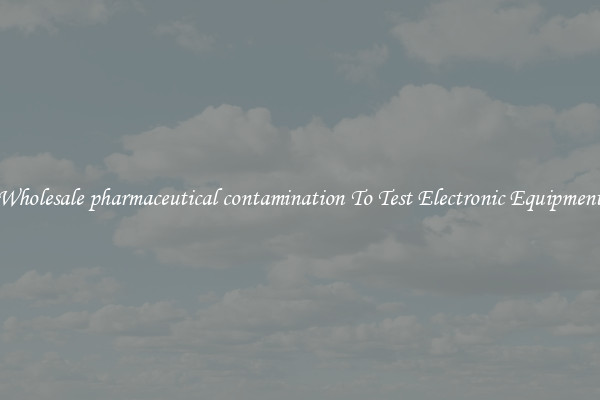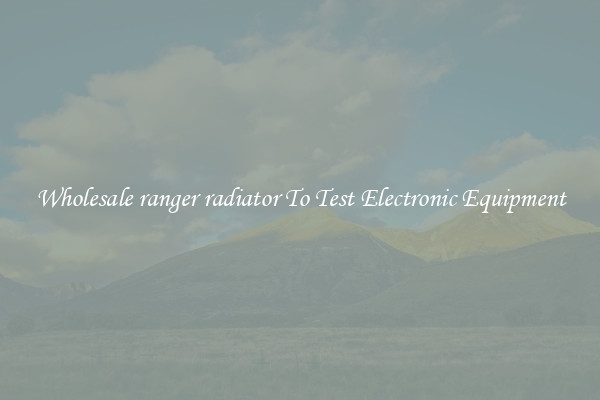Wholesale pharmaceutical contamination To Test Electronic Equipment
Wholesale pharmaceutical contamination is a pressing issue that has been on the rise in recent years. With the increasing demand for pharmaceutical products, it is crucial to ensure that the drugs manufactured and distributed are safe for consumption. However, there have been instances where wholesale pharmaceuticals have been found to be contaminated, posing serious health risks to consumers.

One of the main reasons behind the contamination of wholesale pharmaceuticals is the improper testing of electronic equipment used during the manufacturing process. Electronic equipment such as mixing machines, filling machines, and packaging machines play a crucial role in the production of pharmaceuticals. These machines are used to mix ingredients, fill capsules, and package the final product. If these machines are not properly cleaned and maintained, there is a high risk of contamination.
Contamination can occur in various ways. For example, if the electronic equipment is not cleaned thoroughly after each use, traces of previously manufactured drugs may remain. These remnants can mix with the next batch of pharmaceuticals being produced, resulting in contamination. Additionally, if the machines are not regularly inspected and maintained, parts may deteriorate over time, leading to the release of metal fragments or other foreign substances into the drugs.
The consequences of wholesale pharmaceutical contamination can be severe. Contaminated drugs can cause adverse reactions and health complications in patients, ranging from minor ailments to life-threatening conditions. Moreover, the reputation of pharmaceutical companies can suffer a significant blow due to such incidents, leading to a loss in consumer trust.
To prevent wholesale pharmaceutical contamination, it is crucial to implement strict quality control measures, particularly regarding the testing and maintenance of electronic equipment. Regular testing and inspection should be conducted to ensure that the machines are functioning properly and not introducing any contaminants into the drugs. Proper cleaning protocols should also be established and followed diligently to remove any residues from previous production runs.
Moreover, pharmaceutical companies should invest in the latest technology and equipment, which often come with enhanced cleaning and maintenance features. These advanced machines can help minimize the risk of contamination, providing a safer and more reliable production process.
In conclusion, wholesale pharmaceutical contamination due to improper testing of electronic equipment is a serious concern that needs immediate attention. Stricter quality control measures, including regular testing, inspection, and cleaning, are essential to ensure the safety and efficacy of pharmaceutical products. By prioritizing the maintenance and proper use of electronic equipment, pharmaceutical companies can mitigate the risk of contamination and protect consumers from potential health hazards.

View details

View details

View details

View details








